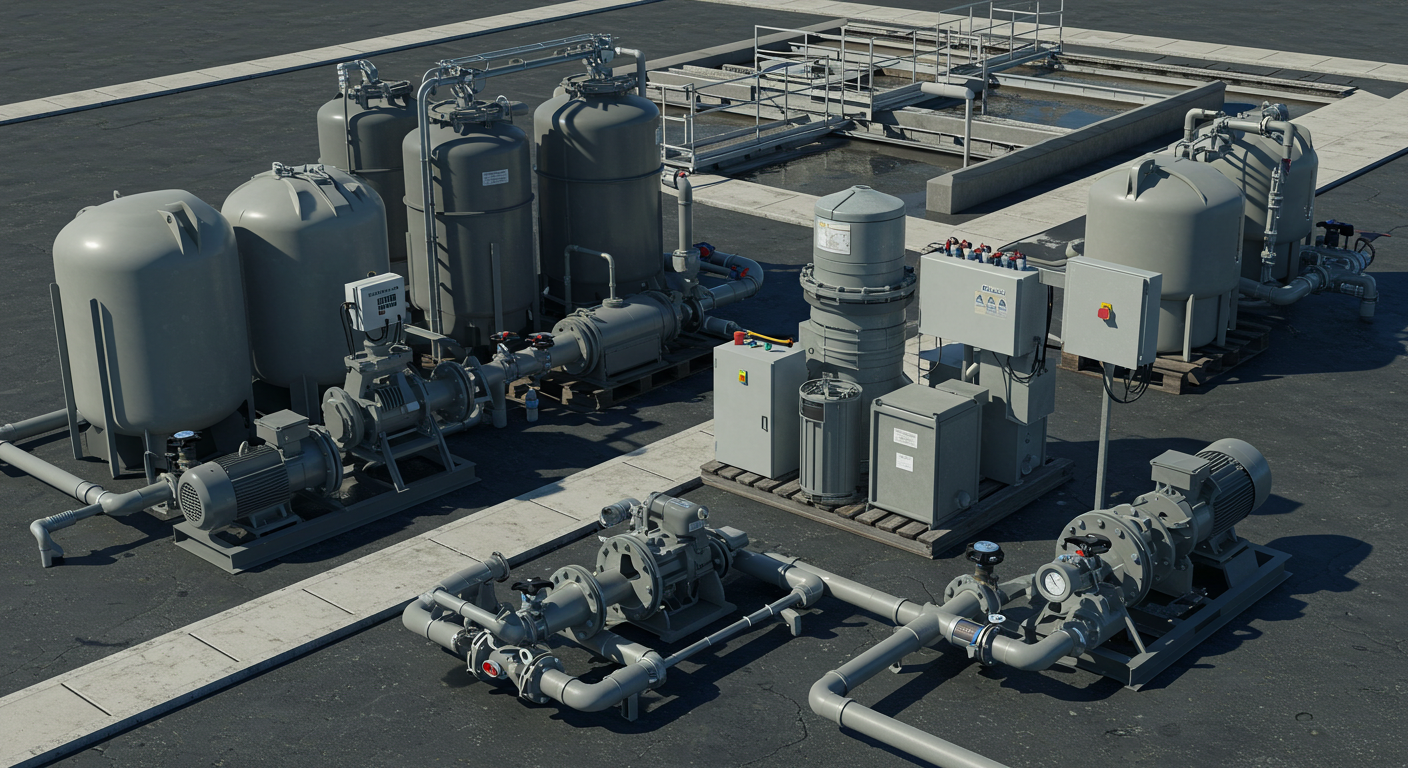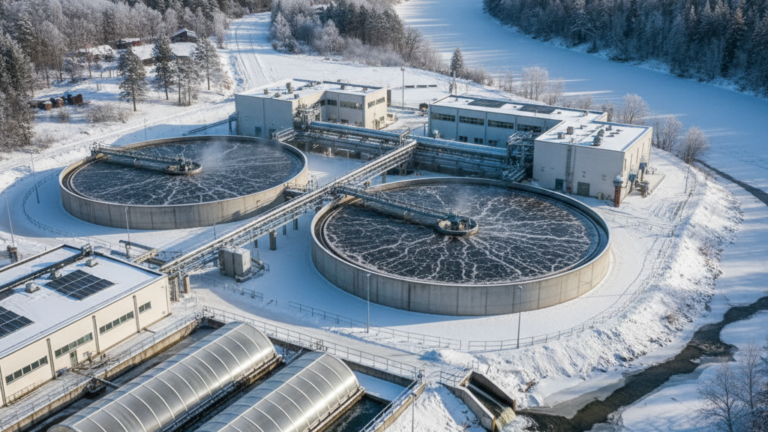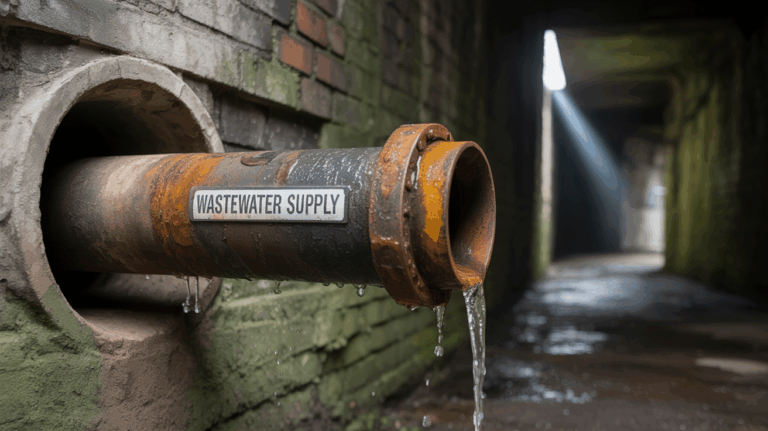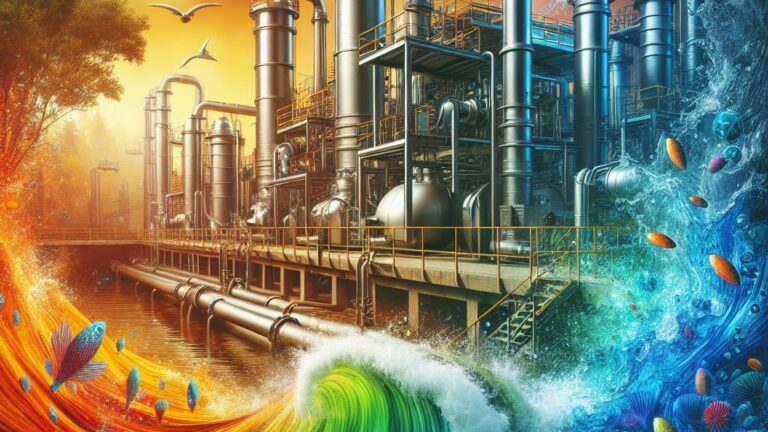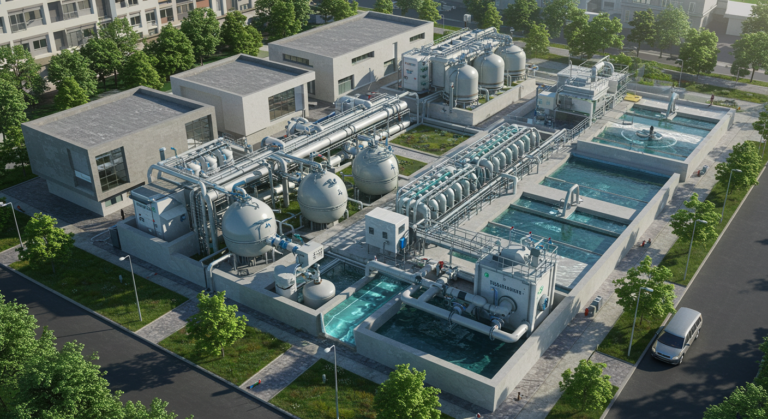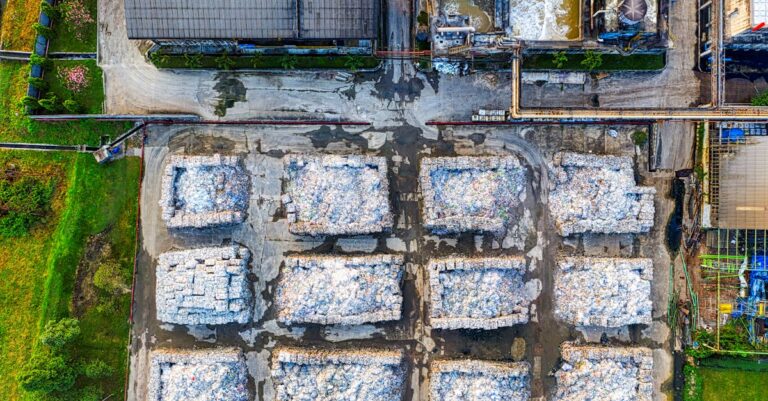Reliable Waste Water Systems: Advanced Treatment & Management Solutions
Reliable Waste Water Systems: Advanced Treatment & Management Solutions encompass a variety of innovative technologies aimed at enhancing the efficiency and effectiveness of wastewater treatment systems. These advanced wastewater treatment solutions include both centralized and decentralized wastewater treatment systems, allowing for tailored approaches to the treatment of wastewater based on specific needs and circumstances. Advanced features in these systems promote the reuse of treated wastewater, thereby conserving water resources and minimizing environmental impacts. Wastewater treatment facilities benefit from implementing these advanced methods, as they ensure compliance with regulatory standards and enhance the overall management of wastewater. By adopting Reliable Waste Water Systems: Advanced Treatment & Management Solutions, communities can significantly improve their wastewater management practices and contribute to sustainable environmental outcomes.
Reliable Waste Water Systems: Advanced Treatment & Management Solutions | Key Features of Advanced Treatment Solutions
Advanced treatment solutions for municipal wastewater treatment are designed to address the issues posed by untreated wastewater. These systems utilize a combination of physical, chemical, and biological methods to effectively treat both domestic and industrial wastewater. By implementing these sophisticated technologies, wastewater treatment plants can convert waste into clean water, thereby optimizing water resources and ensuring compliance with environmental standards.
Key features of Reliable Waste Water Systems: Advanced Treatment & Management Solutions include enhanced filtration and disinfection processes. These technologies are crucial for the effective management of municipal wastewater and the protection of public health. With a focus on sustainability and efficiency, modern wastewater treatment plants are equipped to handle the increasing demands of urban growth, ensuring that both residential and industrial wastewater is treated to the highest standards before being released back into the environment.
Importance of Management Solutions in Waste Water Treatment
Effective management solutions play a crucial role in ensuring the efficiency of Reliable Waste Water Systems: Advanced Treatment & Management Solutions. These solutions are vital for maintaining water quality by addressing both domestic waste and organic waste. Properly managed sewage systems, including stormwater management techniques, safeguard groundwater resources from contamination. This ensures that water supply remains safe for human consumption and supports the purification of fresh water necessary for various ecosystems.
Management solutions not only help in treating sewage effectively but also enhance the performance of sewer systems. By integrating advanced technologies and methodologies, water treatment facilities can optimize their processes, ensuring that the quality of water consistently meets regulatory standards. Proper management enhances the sustainability of water purification efforts, contributing to overall water conservation and protection of vital resources. Reliable Waste Water Systems: Advanced Treatment & Management Solutions are indispensable for achieving these goals.
Advanced Treatment Technologies
Technological advancements are crucial for enhancing Reliable Waste Water Systems: Advanced Treatment & Management Solutions. These systems employ diverse methods to ensure the purification of wastewater, safeguarding drinking water and maintaining groundwater quality. Innovative processes, such as membrane bioreactors, facilitate effective resource recovery while supporting sustainable management practices. Efficient treatment of rainwater through rainwater harvesting not only alleviates pressure on sewers but also contributes to irrigation efforts. With a focus on operation and maintenance, these advanced technologies play a vital role in protecting the water table and ensuring long-term viability of water resources.
Membrane Bioreactors and Their Benefits
Membrane bioreactors (MBRs) are pivotal in the landscape of reliable wastewater treatment, contributing significantly to sustainable water management. By combining biological treatment with membrane filtration, these systems effectively reduce sludge production and improve effluent quality. Their ability to maintain consistent groundwater levels while addressing wastewater treatment challenges makes them a valuable component of reliable wastewater systems: advanced treatment & management solutions. The efficient removal of contaminants through MBRs supports the growing demand for wastewater reuse systems, promoting sustainable practices in wastewater management.
The versatility of MBR technology enhances its appeal across various applications in wastewater systems. These systems demonstrate exceptional performance in treating diverse wastewater streams, making them crucial for effective wastewater treatment. As cities face increasing pressures on their water resources, MBRs offer solutions that enable communities to optimize their wastewater management practices. By ensuring cleaner effluent and reducing reliance on traditional treatment methods, MBRs play a significant role in reinforcing reliable wastewater systems: advanced treatment & management solutions.
Physical, Chemical, and Biological Treatment Methods
The wastewater treatment process incorporates a variety of methods to ensure stable wastewater treatment across different settings. Physical, chemical, and biological methods stand out as essential components in Reliable Waste Water Systems: Advanced Treatment & Management Solutions. Each approach addresses specific wastewater treatment needs and can be tailored to suit diverse environments, from industrial wastewater management to domestic wastewater disposal. By employing a combination of these techniques, water management strategies can achieve effective and efficient results, ensuring responsible water management practices.
Effective wastewater methods are crucial in both commercial wastewater systems and decentralized wastewater treatment setups. Mobile wastewater treatment units are becoming increasingly popular due to their flexibility in addressing localized wastewater treatment area needs. These technologies enhance the overall efficiency of the wastewater treatment process while aligning with contemporary demands for sustainable and reliable solutions. As communities strive for better resource management, integrating these advanced treatment methods will be essential in meeting future wastewater challenges.
Effective Management Strategies
Effective management strategies for Reliable Waste Water Systems: Advanced Treatment & Management Solutions play a crucial role in the success of both residential and commercial wastewater treatment applications. These strategies include implementing efficient monitoring and control systems that enhance the performance of wastewater collection processes. Unique wastewater treatment solutions, like high-strength wastewater treatment units, are vital for dealing with diverse wastewater profiles while ensuring compliance with regulatory standards. The focus on treated water quality not only conserves water resources but also supports sustainability goals. With emerging technologies, future wastewater treatment will likely incorporate smart solutions that optimize the management of wastewater systems, leading to top-tier treatment outcomes.
Monitoring and Control Systems
Effective monitoring and control systems are essential for optimizing Reliable Waste Water Systems: Advanced Treatment & Management Solutions. By continuously assessing wastewater characteristics, these systems ensure that residential wastewater collection operates efficiently. This capability is particularly important in multi-family wastewater treatment scenarios where complex wastewater streams often arise. Daily water treatment can be finely tuned to adapt to high-strength wastewater, preventing untreated wastewater from polluting local environments.
The integration of smart technologies in monitoring and control enhances the reliability of wastewater networks. These systems allow wastewater industry leaders to track and manage flows in real-time, significantly improving overall performance. Ensuring that purified wastewater meets regulatory standards is crucial for public health and environmental protection. Sophisticated monitoring tools can analyze data trends, enabling proactive responses to potential issues and ensuring that wastewater pros can maintain optimal functioning of treatment processes.
Regulatory Compliance and Environmental Standards
Regulatory compliance plays a crucial role in the wastewater field. Reliable Waste Water Systems: Advanced Treatment & Management Solutions must ensure that discharged wastewater meets stringent environmental standards. This includes the treatment of various sources, such as household wastewater flows and winery wastewater treatment. Technologies like Infiltrator water technologies and Advantex wastewater treatment systems offer reliable solutions for onsite wastewater treatment, targeting wastewater impurities effectively to protect own water resources.
Adherence to environmental regulations not only safeguards public health but also promotes sustainable practices in wastewater management. The challenge lies in developing systems that can handle incoming wastewater efficiently while maintaining compliance. As such, municipalities and industries must invest in reliable waste water systems that are capable of treating domestic wastewater flows to meet regulatory requirements, ensuring that the discharged wastewater aligns with environmental standards for the benefit of ecosystems and communities alike.
Innovations in Waste Water Systems
Innovative approaches to wastewater management emphasize the development of Reliable Waste Water Systems: Advanced Treatment & Management Solutions. These systems effectively manage complex wastewater influent, enabling the preservation of local water supply through the integration of rainwater systems and optimized water reserves. With a focus on energy-efficient treatment solutions, advanced technologies minimize risks such as sewage contamination, even in challenging environments like those generated by professional winery wastewater. The pursuit of efficient solutions not only enhances sanitation systems but also supports the growing need for sustainable practices in water treatment. By exploring platforms like infiltratorwater.com, users can access resources for implementing advanced solutions tailored to their specific requirements.
Smart Technologies and IoT Applications
The integration of smart technologies and IoT applications into reliable waste water systems leads to significant advancements in treatment and management solutions. These technologies enable real-time monitoring of water levels in residential treatment systems, ensuring optimal performance. By utilizing sensors and data analytics, operators can achieve effective removal processes and enhance the efficiency of soil absorption systems. Such capabilities allow for timely leach repair, which is crucial for maintaining system integrity and minimizing environmental impact.
Low-maintenance systems benefit greatly from IoT applications, as they provide automated alerts and updates, reducing the need for constant manual oversight. A rainwater collector can be seamlessly integrated into these smart systems, allowing for responsible solutions that promote water conservation. With improved process efficiency, waste water management becomes not only more effective but also more sustainable, ultimately advancing the goals of reliable waste water systems: advanced treatment & management solutions.
Sustainable Practices in Waste Water Management
Sustainable practices in waste water management focus on optimizing resources while ensuring effective treatment. Reliable Waste Water Systems: Advanced Treatment & Management Solutions prioritize advanced treatment processes that significantly enhance nutrient removal and minimize environmental impact. Implementing hydro-kinetic systems can lead to a more efficient approach by harnessing natural water flow to power treatment systems. Greywater systems play a crucial role in conserving water, providing an eco-friendly alternative for non-potable uses.
The integration of advanced treatment systems not only supports operational efficiency but also reduces maintenance needs. Collaborating with a treatment system company known for its innovative solutions ensures that facilities maintain compliance with environmental standards. Urban drainage experts recommend practices that promote optimal management, leading to a reliable system for communities. Emphasizing sustainable methodologies contributes to the resilience of waste water management initiatives and supports broader ecological goals.
Selecting the Right System for Your Needs
Choosing the appropriate system for waste water management requires careful consideration of various factors. Reliable Waste Water Systems: Advanced Treatment & Management Solutions must be suited to the specific needs of the area, including the types of water bodies affected and the potential impact of runoff from rainwater networks. An effective management strategy involves evaluating solutions that optimize treatment efficiency, such as the extended aeration process, while avoiding configurations that might limit performance, like inefficient clarifier floor sludge management. It’s essential to align the selected approach with local municipal sewers and environmental regulations, ensuring that the effluent solution meets sustainable standards. The right system should not only address immediate treatment needs but also promote a sustainable approach for long-term benefits.
Factors to Consider in System Design
Designing a reliable waste water system requires careful consideration of various factors that ensure efficiency and effectiveness. An effective sewerage network should seamlessly integrate with existing urban drainage offers. The treatment process must utilize advanced treatment technologies capable of managing settled sludge returns while conserving resources. Engaging both natural solutions and specialized solutions can enhance the system’s overall functionality, aligning with Reliable Waste Water Systems: Advanced Treatment & Management Solutions.
Environmental impact remains a critical aspect of system design. Protecting ground water presents a significant challenge that necessitates innovative strategies. Selecting a treatment system that supports sustainable practices will mitigate pollution and promote long-term viability. Employing advanced treatment technology allows for flexibility in adapting to future requirements, ensuring reliable waste water systems are both practical and environmentally responsible.
Budgeting and Cost Analysis
Effective budgeting and cost analysis are crucial for the successful implementation of Reliable Waste Water Systems: Advanced Treatment & Management Solutions. Investing in technologies like maintenance-free actuators and innovative pump system products can enhance the efficiency of municipal treatment processes. These systems must also consider environmental challenges such as high-water tables and the protection of sensitive water bodies. By allocating resources wisely, facilities can ensure regular maintenance and operational longevity while adhering to strict regulatory requirements.
Cost considerations extend beyond initial installation expenses to encompass ongoing management support and maintenance. Utilizing passive treatment technologies can lead to significant savings over time and reduce the need for frequent interventions. Reliable Waste Water Systems: Advanced Treatment & Management Solutions require foresight in terms of both financial commitments and operational capabilities. Analyzing the total cost of ownership will empower stakeholders to make informed decisions that align with both budget constraints and environmental objectives.
Case Studies of Successful Waste Water Management
Examining various successful implementations of Reliable Waste Water Systems: Advanced Treatment & Management Solutions reveals a trend toward decentralized systems that effectively manage and treat waste water for both reuse applications and recreational waters. These systems often utilize innovative tank designs and processes that prioritize resource efficiency while delivering friendly solutions to complex waste management challenges. Case studies illustrate how these advanced treatment systems not only protect essential water resources but also contribute to healthier ecosystems by ensuring that treated waters can safely re-enter the environment or be reused in various applications. The integration of advanced treatment technologies within these management strategies highlights their effectiveness in achieving sustainability goals.
Conclusion
Reliable Waste Water Systems: Advanced Treatment & Management Solutions play a crucial role in ensuring effective treatment and disposal of wastewater. The integration of advanced technologies such as membrane bioreactors enhances performance while maintaining environmental standards. Utilizing innovative monitoring and control systems optimizes operation efficiency across basins, leading to sustainable management practices. As industries increasingly adopt these advanced treatment solutions, they witness significant improvements in resource recovery and compliance with regulatory requirements. Investing in these AES systems not only addresses pressing environmental challenges but also promotes a healthier ecosystem for future generations.
FAQS
What are some effective solutions for managing untreated wastewater that can limit treatment efficiency in residential wastewater systems?
Effective solutions for managing untreated wastewater include the implementation of top-tier wastewater treatment systems, such as those provided by Orenco sewers and tanks. These efficient wastewater systems are designed to improve residential wastewater treatment, ensuring that wastewater applications do not lead to pollution. By placing advanced solutions in the treatment process, we can enhance treatment efficiency and mitigate the impacts of untreated wastewater pollutes.
What innovative management solutions can be implemented to improve the performance of residential wastewater systems and limit treatment efficiency issues?
To enhance the performance of residential wastewater systems and limit treatment efficiency problems, several innovative management solutions can be applied. These include introducing advanced filtration technologies, regular maintenance protocols, and community awareness programs to educate residents on proper wastewater disposal. By placing solutions like these into practice, homeowners can significantly improve the overall effectiveness of their wastewater systems.
What are some strategies to effectively place solutions for managing wastewater in residential systems?
To effectively place solutions for managing wastewater in residential systems, consider implementing advanced treatment technologies, optimizing system design, and adopting regular maintenance practices to enhance efficiency and reliability.
How can advanced treatment technologies enhance the efficiency of residential wastewater systems in managing untreated wastewater?
Advanced treatment technologies, such as membrane bioreactors and advanced oxidation processes, can significantly enhance the efficiency of residential wastewater systems. By utilizing these innovative methods, homeowners can effectively manage untreated wastewater, ensuring a more reliable waste water system and improving overall treatment outcomes.
How can emerging technologies improve the management of wastewater treatment in residential systems?
Emerging technologies such as membrane bioreactors, advanced oxidation processes, and decentralized treatment systems can significantly enhance the management of wastewater treatment in residential systems. These innovations not only improve the efficiency of the systems but also ensure compliance with environmental standards, leading to more effective wastewater management overall.

